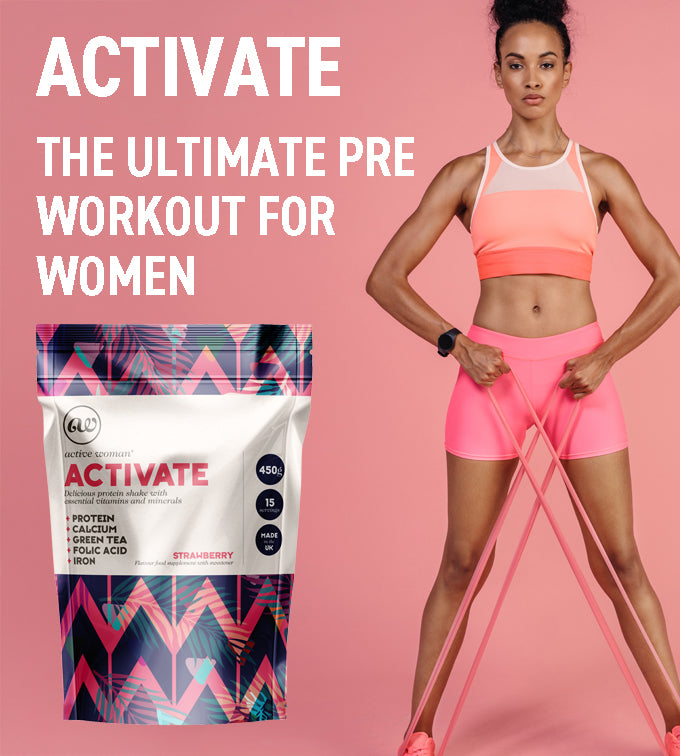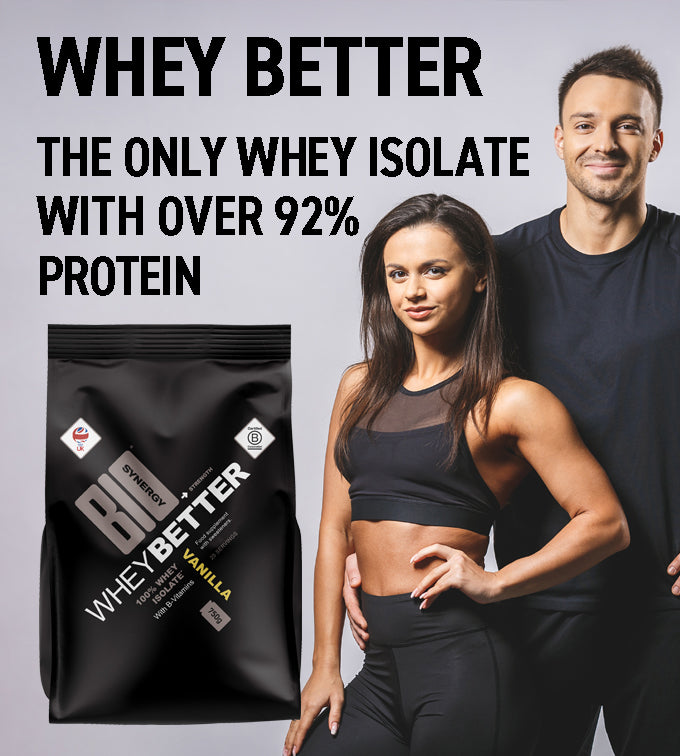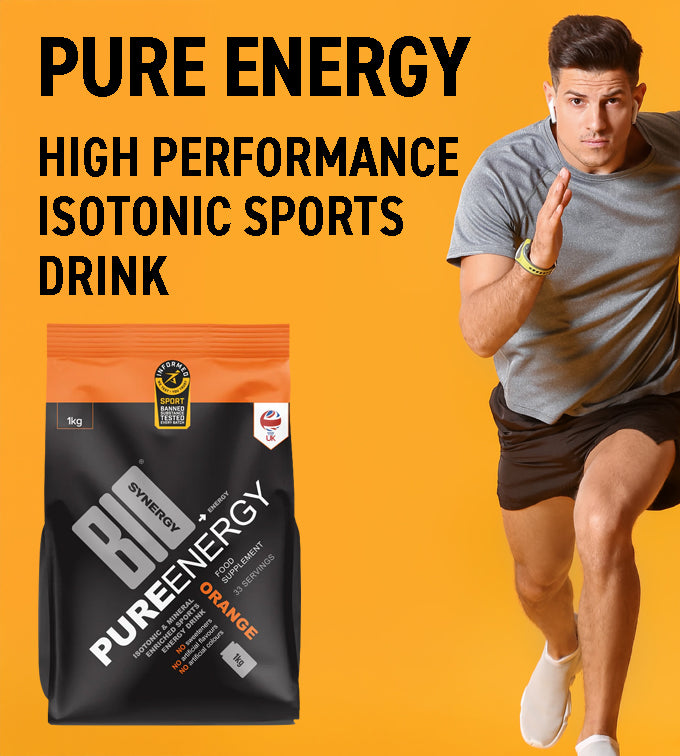Use the right sports nutrition products at the right time to lose weight, lower pyour body-fat levels, add lean muscle mass, improve sports performance, improve mental health and cognitive performance, avoid any nutritional deficiencies, and much more besides.
While they aren’t magic pills – a smart exercise programme, a delicious and nutritious diet, and quality sleep are the three big-picture pieces to prioritise when you want to lose fat and build a stronger and fitter physique – supplements can make a positive difference to how you look and feel by providing your body with all the essential macronutrients and micronutrients it needs to build muscle, burn fat and function optimally.
So think of supplements as an insurance policy to fill in any nutritional gaps that are difficult or impossible to cover with your daily diet. Below are 10 supplements – all fully supported by science – that you may want to consider taking to accelerate your progress towards a bigger, stronger and leaner body, but first here’s the answers to the three most common supplement questions we get asked.
Should I take supplements every day?
It all depends on the product you’re taking! Some supplements are meant to be taken daily, such as multivitamins and omega-3 fish oil, because they are proven to improve general health and well-being. Others, such as whey protein powder, can also be taken on non-training days as a quick and easy way to increase your daily protein intake. Pre-workout formulas should be only taken immediately before training. If you are in any doubt about when or how often you should take a certain product, simply check the product’s label or company website for guidance.
Can I use supps instead of regular meals?
Some supplements, especially in the weight-loss sector, are promoted as meal-replacement products (MRPs). But whether your goal is reducing body fat, building lean muscle or improving general health and fitness, fresh, whole and natural food should always be your preferred nutrition option over pills, bars or shakes. These products are useful in situations where you have no alternative other than going hungry, but always remember, they are called “supplements” for a good reason: an eating approach based on high-quality food takes priority.
Does it matter where they come from?
All supplements made in the UK should adhere to strict laws and regulations designed to ensure consumer safety. While products originated outside of UK may be cheaper, they may not be made to the same exact standards, with cheaper component ingredients or even cross-contaminated with other compounds. Since 1997 all Bio-Synergy products have been produced in the UK to exacting standards, check out our creds.
THE 9 BEST SPORTS NUTRITION SUPPLEMENTS
1 Whey protein powder
What is it?
Whey is a by-product of the cheese-making process – the liquid left over once the milk has been curdled and strained. In its powdered form whey protein is one of the most popular sports nutrition products in the world because it’s very rapidly digested, which means it gets to your muscles very quickly after training to kick-start muscle protein synthesis (MPS) – the process of repairing muscle damage caused by training to make your muscles bigger and stronger.
Do I need it?
If you are serious about making positive changes to your body – then you should invest in a tub of high-quality whey powder. A whey protein shake, ideally made with cold water or skimmed milk, taken within 30 minutes of the end of your training session will flood your bloodstream with amino acids (the building blocks of protein), which are quickly shuttled into your muscle cells where they are laid down as new muscle tissue.
2. Omega-3 fish oil
What is it?
Omega-3 is an essential fatty acid, which means that our bodies can’t manufacture it so we need to consume it from our diet. It is found in high concentrations in oily fish, especially those that live in colder waters. Omega-3 is very important for healthy metabolic function and adequate intake provides a whole host of other health benefits, including reducing the risk of cardiovascular disease, certain cancers, mental health disorders and inflammation.
Do I need it?
The consumption of fish is a very important component of a healthy and balanced diet. If you’re not getting the recommended two portions of fish per week, one white and one oily (and the chances are you’re not because the UK average is only a third of a portion per week), then you should consider taking a high-quality omega-3 supplement. And in case you were wondering, a fish n chip with a side of mushy peas isn’t the right option to increase your intake of omega-3 if you want to burn off as much body fat as possible!
3. Pre-workout supplement
What is it?
Designed to be taken ahead of your training session, pre-workout supplements contain a combination of compounds intended to improve focus, performance and energy, as well as better blood flow to deliver oxygen and nutrients to your working muscles faster. The key ingredients typically include caffeine, the amino acids beta-alanine and arginine, and creatine, but it may also contain other compounds.
Do I need it?
Research supports claims that caffeine improves focus and concentration, and many people say they get a superior “pump” because of increased blood flow to the working muscles. For some, taking a pre-workout formula also provides a psychological boost that gets them fired up for their session and so they consequently perform better.
4. Vitamin D
What is it?
Vitamin D is a fat-soluble vitamin-like compound that plays an essential role in a huge number of biological functions, as well as improving cognition and reducing the risk of certain cancers, cardiovascular disease and dementia. It is produced by your body when your skin is exposed to direct sunlight, but is also found in low doses in some foods, such as fish and eggs.
Do I need it?
If you live in the UK, or other higher-latitude parts of the northern hemisphere, then the chances are that you will have some level of vitamin D deficiency. One study found more than 50% of the UK adult population have sub-optimal levels because there isn’t enough strong sunlight for much of the year to make production possible.
5. BCAAs
What is it?
A combined form of three of the nine essential amino acids – leucine, isoleucine and valine. They are called “essential” because your body can’t manufacture them and so they must be obtained through the food you eat.
Do I need it?
Research is fairly conclusive that BCAA supplementation before, during and after training can help induce muscle protein synthesis, which is the technical term for the process that lays down new muscle tissue so your muscles grow bigger and stronger. BCAAs also improve muscular endurance, increase energy levels, and reduce recovery time. For even better results use alongside a protein shake and multivitamin.
6. Creatine
What is it?
Creatine is an organic compound that exists naturally in the body (90-120g) and is instrumental in providing energy to your cells. It is not an essential nutrient because your body can make it from two amino acids (glycine and arginine), but it can also be consumed through certain foods. Red meat, such as steak, is naturally high in creatine.
Do I need it?
Even if you eat a lot of red meat, supplementing with creatine will increase your body’s natural levels to provide a number of significant performance and physique benefits. Research has shown that creatine supplementation can increase physical performance, especially in successive bursts of short-term, high-intensity exercise, such as weight training or interval training, because the energy it supplies enables your muscles to work harder for longer. Always take creatine with plenty of water.
8. Zinc
What is it?
Zinc is an essential trace element that’s found in up to 300 different enzymes and plays a part in a huge number of biological roles, including DNA metabolism, hormone production and function (including testosterone), brain health, and efficient central nervous system function, among many others. Shellfish and red meat, especially beef, lamb and liver, are among the best dietary sources of zinc.
Do I need it?
There’s no official UK recommended daily intake, but in the US the RDA is 11mg per day for men, yet only 58% of Americans meet this target, according to the US Department of Agriculture. Eating organic fish and red meat regularly should enable you to hit this target, and while zinc is also found in plants, increasingly poor soil quality due to over-farming means produce is now typically less nutrient-dense than a generation ago. Zinc is lost through sweat, so supplementation could be a smart move.
9. Magnesium
What is it?
Like zinc, magnesium is an essential trace element – every single cell in your body needs magnesium ions to function because they’re involved in the production of energy, while hundreds of enzymes require its presence to work optimally. Nuts, green leafy vegetables and wholegrains are the best dietary sources.
Do I need it?
The UK recommended daily intake for magnesium is 300mg for men. But with 68% of Americans not hitting their daily target, according to the US Department of Agriculture, it’s likely that percentage is replicated in the UK too, given our similar diets and lifestyles. Magnesium is needed for central nervous system function and muscle contractions, both of which are a big part of training, and exercise can deplete your levels, so supplementation might be worth considering.
10. Multivitamin
What is it?
Exactly what is sounds like: a tablet or capsule that contains either all or a significant dose of the recommended daily intake of all the essential micronutrients you need to function optimally.
Do I need it?
If you are eating a natural and varied whole-food diet then you should get all the vitamins and minerals you need. However, mass-produced factory foods dominate our supermarket aisles, and soil and air pollution and increasing pesticide use means that many foods now have lower levels of nutrients than at any time in history. Popping a daily multivitamin can act as a good insurance policy to ensure you hit your daily target of essential nutrients.








